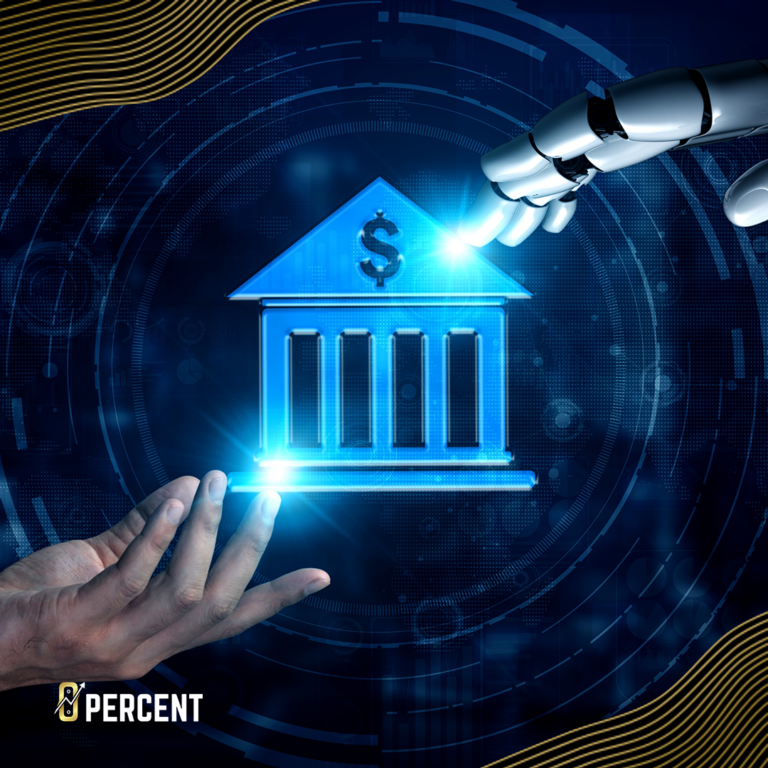AI and Machine Learning in Personal Finance
Automating Financial Tasks
AI and machine learning algorithms have revolutionized the automation of financial tasks. Traditional manual processes, such as data entry, transaction categorization, and bill payments, can now be handled efficiently by intelligent systems. Through natural language processing and optical character recognition, AI-powered financial software can automatically extract information from invoices, receipts, and financial documents, reducing human errors and saving time.
Enhancing Budgeting and Expense Tracking
With AI and machine learning, budgeting and expense tracking have become more intuitive and accurate. Personal finance apps and platforms leverage these technologies to analyze spending patterns, identify trends, and offer personalized recommendations for optimizing budgets. By categorizing expenses automatically and providing real-time insights, individuals can gain a comprehensive view of their financial health and make informed decisions to achieve their goals.
Optimizing Investment Strategies
AI and machine learning have transformed the investment landscape. Financial institutions and individual investors can now leverage sophisticated algorithms to analyze vast amounts of financial data and identify patterns. These technologies can provide personalized investment recommendations based on individual risk tolerance, financial goals, and market conditions. By automating portfolio management and utilizing predictive analytics, AI-driven investment platforms help optimize investment strategies and potentially enhance returns.
Improving Credit Scoring and Loan Approval
Credit scoring and loan approval processes have traditionally relied on manual evaluation and subjective judgment. However, AI and machine learning algorithms can analyze a wide range of factors and data points to generate more accurate credit scores and assess creditworthiness. These technologies can also expedite loan approval processes by automating document verification and risk assessment. This streamlined approach improves efficiency, reduces bias, and enhances access to credit for individuals with limited credit history.
Detecting Fraud and Enhancing Security
AI and machine learning play a pivotal role in fraud detection and security enhancement within personal finance. These technologies can analyze vast amounts of financial data, identify unusual patterns, and detect potential fraudulent activities in real-time. By leveraging anomaly detection algorithms and predictive models, financial institutions can proactively prevent fraud, safeguard customer accounts, and enhance overall security.
Challenges and Limitations of AI and Machine Learning in Personal Finance
While AI and machine learning have great potential, there are also challenges and limitations to consider in the context of personal finance.
Privacy and Data Security Concerns
The adoption of AI and machine learning in personal finance raises concerns regarding privacy and data security. As financial data becomes increasingly digitized and accessible, protecting personal information becomes paramount. It is crucial to establish robust security protocols and adhere to strict privacy regulations to ensure the confidentiality and integrity of sensitive financial data.
Bias and Fairness Issues
Another challenge is the potential for bias and fairness issues in AI-driven financial systems. Machine learning algorithms learn from historical data, which may contain biases and inequalities. If not carefully monitored and calibrated, these algorithms can perpetuate discriminatory practices, affecting loan approvals, credit scoring, and other financial decisions. Ethical considerations and ongoing monitoring are essential to mitigate such biases.
Overreliance on Algorithms
Relying too heavily on AI and machine learning algorithms can present risks. While these technologies offer valuable insights, human judgment and intuition are equally important in personal finance decisions. Overreliance on algorithms without considering individual circumstances and preferences can lead to suboptimal outcomes. It is essential to strike a balance between automated decision-making and human involvement to ensure personalized and well-informed financial choices.
Lack of Human Interaction and Emotional Intelligence
Personal finance often involves complex emotions and unique individual circumstances. While AI and machine learning can process vast amounts of data, they may lack the empathy and emotional intelligence required to fully understand and address individual needs. Human interaction, such as financial advisors and customer support, remains crucial to provide personalized guidance and support during critical financial decisions.
Future Outlook: The Potential of AI and Machine Learning
Despite the challenges, the future of AI and machine learning in personal finance is promising. Here are some potential applications and developments to look forward to:
Personalized Financial Advice and Recommendations
AI-powered financial advisors can provide personalized recommendations tailored to individual financial goals, risk tolerance, and preferences. These advisors can consider a multitude of factors and suggest optimal strategies for saving, investing, and debt management. By leveraging machine learning algorithms, personalized financial advice can empower individuals to make informed decisions and improve their overall financial well-being.
Predictive Analytics for Better Financial Planning
AI and machine learning enable predictive analytics, which can revolutionize financial planning. By analyzing historical data, market trends, and individual financial behavior, predictive models can forecast future expenses, income fluctuations, and potential financial challenges. Armed with this information, individuals can plan ahead, allocate resources efficiently, and take proactive measures to mitigate financial risks.
Robo-Advisors and Virtual Financial Assistants
Robo-advisors and virtual financial assistants powered by AI and machine learning algorithms are gaining popularity. These digital assistants can provide automated investment recommendations, monitor portfolios, and answer financial queries in real-time. They offer convenience, accessibility, and cost-effectiveness, making personalized financial guidance more accessible to a broader audience.
Enhanced Fraud Detection and Prevention
The fight against financial fraud can be significantly bolstered by AI and machine learning. Advanced algorithms can detect suspicious activities, identify patterns of fraudulent behavior, and enhance fraud prevention measures. By continuously analyzing financial data and employing anomaly detection techniques, AI-powered systems can detect fraud in real-time, minimizing financial losses and protecting individuals’ assets.
Integration with IoT and Smart Devices
The integration of AI and machine learning with the Internet of Things (IoT) and smart devices opens up new avenues for personal finance. Connected devices can provide real-time financial information, automate bill payments, and optimize energy consumption to reduce costs. By leveraging AI algorithms, these devices can learn individual preferences, make intelligent recommendations, and help individuals manage their finances more efficiently.
Conclusion
AI and machine learning have revolutionized personal finance, offering a wide range of applications and benefits. From automating financial tasks to enhancing investment strategies and improving fraud detection, these technologies are transforming how individuals manage their finances. However, it is crucial to address challenges related to privacy, bias, overreliance on algorithms, and the need for human interaction. The future outlook for AI and machine learning in personal finance is promising, with personalized advice, predictive analytics, robo-advisors, enhanced security, and integration with IoT set to shape the financial landscape.








